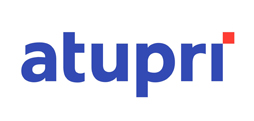Basic, compulsory health insurance is supposed to provide identical health insurance coverage to all residents. The Swiss federal law regulating health insurance dictates the benefits which compulsory health insurance must deliver. Many comparison services promote the notion that varying premiums are the only real difference between Swiss compulsory health insurance policies because coverage is dictated by law. However, in actual practice, service delivery in many key areas varies from one insurance provider to another. Differences are found in claim settlement methods, guarantees of payment, administrative expenses, solvency levels, settlement of claims, reimbursement periods, customer satisfaction and availability of managed care insurance policies.
Differences in claim settlement methods
Both direct settlement (tiers payant) and indirect settlement (tiers garant) of insurance claims are used by Swiss compulsory health insurance providers. A third method of claim settlement, known as tiers soldant, is rarely used. When indirect settlement is used, policyholders are billed by doctors and other healthcare service providers. After paying their bills, policyholders claim reimbursement from their insurance provider. It is up to the policyholder to ensure that the claim is made.
When direct settlement is used, doctors bill the insurance provider directly. The policyholder does not need to front the money and then claim reimbursement, so direct settlement is generally considered more customer friendly. The majority of compulsory health insurance claims are now settled using direct settlement. However, there are still insurance providers which primarily use indirect settlement for compulsory health insurance claims. For example, Assura uses indirect settlement to settle claims for covered medicines.
Differences in reimbursement periods
The amount of time it takes insurers to reimburse claims processed using indirect settlement varies between insurance providers. In the worst case, long claim settlement periods can drive policyholders who cannot afford to front large amounts of money into financial difficulties.
In 2017, moneyland.ch asked insurance companies to update information about settlement periods collected by the Federal Office of Public Health (FOPH) in 2014. Updated data shows that while some health insurance providers settle claims within days, other insurers take as long as a month to reimburse policyholders. In isolated cases, settlement of claims can take much longer than that (more information can be found in the moneyland.ch guide to health insurance claim settlement periods).
An exceptional number of complaints have been made by Assura customers. According to the FOPH survey in 2014, the average reimbursement period at Assura was 37 days. In 2016, Assura stated their average claim-settlement period at 25 days.
Differences in guarantees of payment
The length of time it takes for insurers to reimburse healthcare expenses is just one side of the coin. Another major difference between insurance providers lies in whether or not expenses are reimbursed at all. Doctors repeatedly complain about differences in the readiness of health insurance providers to settle claims – particularly insofar as expensive medicines are concerned. Some insurers cover the costs of certain medicines for the treatment of cancer, while others turn down requests for guarantees of payment.
Differences in customer satisfaction
Customer satisfaction levels are another area in which notable differences are found, as this year’s moneyland.ch health insurance customer satisfaction survey shows. While on average, policyholders in Switzerland are satisfied with the service they receive from their insurance providers, there are marked differences in customer satisfaction from one insurer to another. Ratings by Assura and Supra customers, for example, show markedly lower levels of customer satisfaction with the friendliness and helpfulness of representatives, accessibility, reaction time, price-to-value ratio, tolerance for delayed payments, reimbursement periods, and clarity of information provided.
Differences in managed care models
Managed care models, such as the telemedicine, HMO and family doctor models, often have heavily discounted premiums compared to standard, unrestricted policies. In many cases getting a managed care policy is advisable. However, it is important to review the exact terms and conditions of managed care policies before signing up. Insurance companies place their own terms and conditions on their managed care policies, so there can be differences between different policies based on the same managed care model.
For example, there are insurance providers which offer more than one telemedicine policy, with the cheaper budget policy having tighter restrictions. Restrictions may include a more limited choice of doctors or strict adherence to the recommendations made by the telemedicine call center, for example. Some managed care policies limit cover for medicines to purchases from certain pharmacies. There are also differences in the availability of managed care policies. Many insurance providers only offer policies based on certain managed care models. Some do not offer managed care policies at all.
Differences in solvency levels
The financial reserves held by health insurance providers vary broadly. While some small insurance providers only have around 2 million francs at their disposal, large insurance companies like Helsana sit on reserves in excess of 1 billion Swiss francs. Solvency levels – the ratio of actual reserves in relation to the minimum amount of reserves dictated by the FOPH – also vary between insurers. Across Swiss health insurance providers, this ratio varies between around 60% (40% below reserve requirements) and more than 500% (400% above reserve requirements).
Differences in administrative expenses
The running expenses of insurance providers may not have a direct impact on service delivery, but they do provide interesting insights into the way in which premiums are managed. The administrative expenses of health insurance companies in relation to the number of policyholders they service range from 87 Swiss francs per policyholder to 383 francs per policyholders (FOPH data for 2016). The ratio between administrative costs and risk-adjusted premiums ranges between an efficient 2.91% and a high 12.21%.
The services and properties of health insurance providers can be found in the compulsory health insurance comparison on moneyland.ch. Information provided in the comparison includes customer satisfaction ratings, average claim settlement periods, the ratio of direct and indirect settlements, solvency levels, administrative expenses and descriptions of managed care policies.
More on this topic:
Compulsory Swiss health insurance comparison
Health insurance claim settlement periods compared
Health insurance: claims settlement models compared

 Deal of the Day
Deal of the Day 








